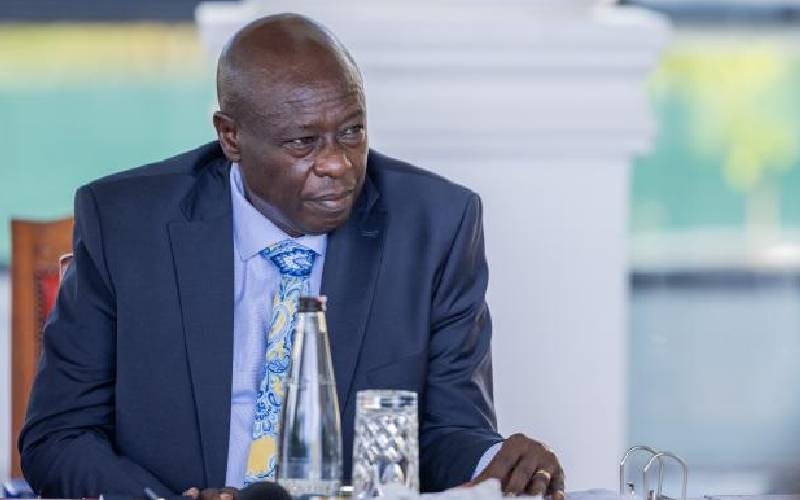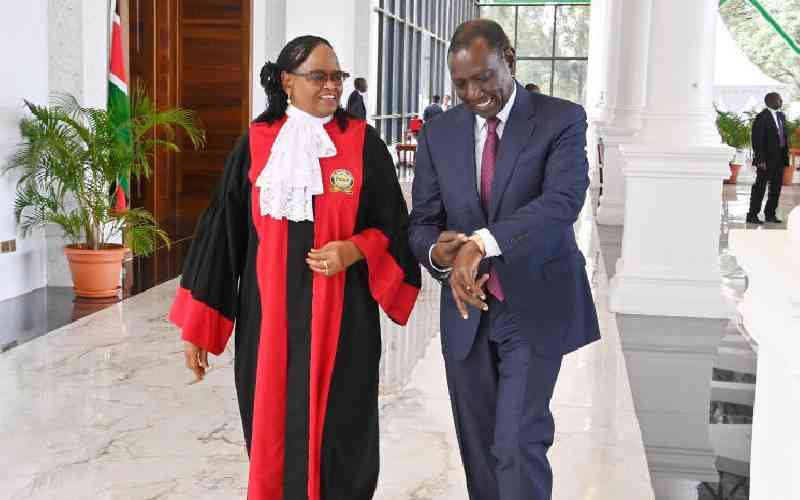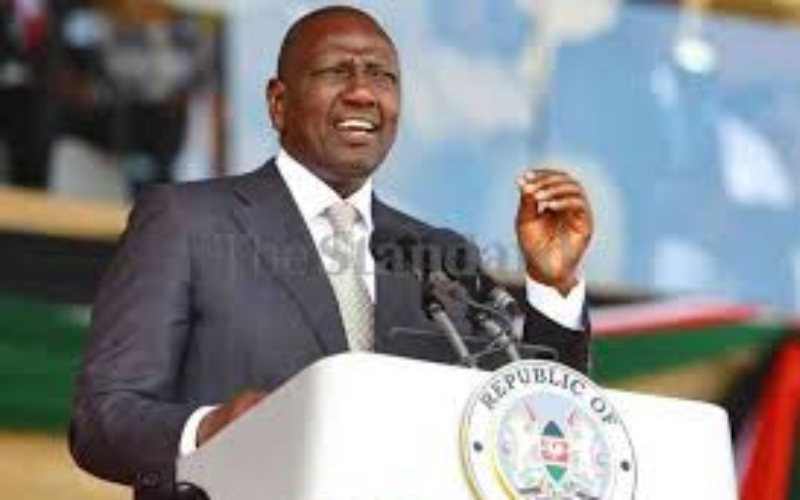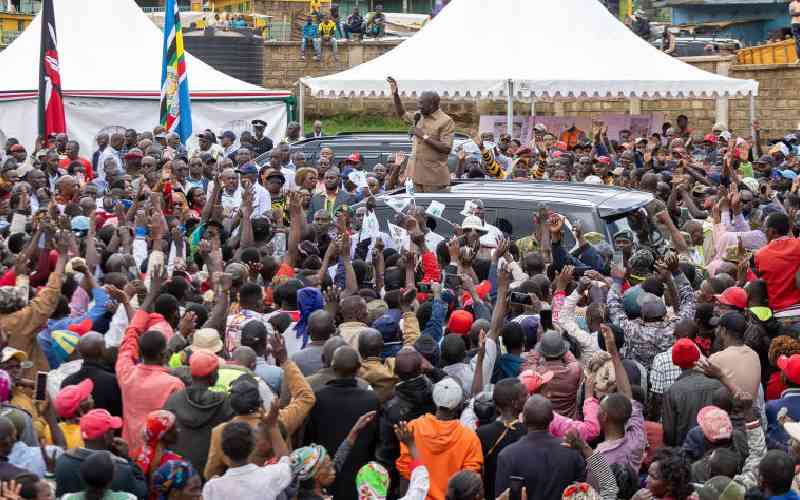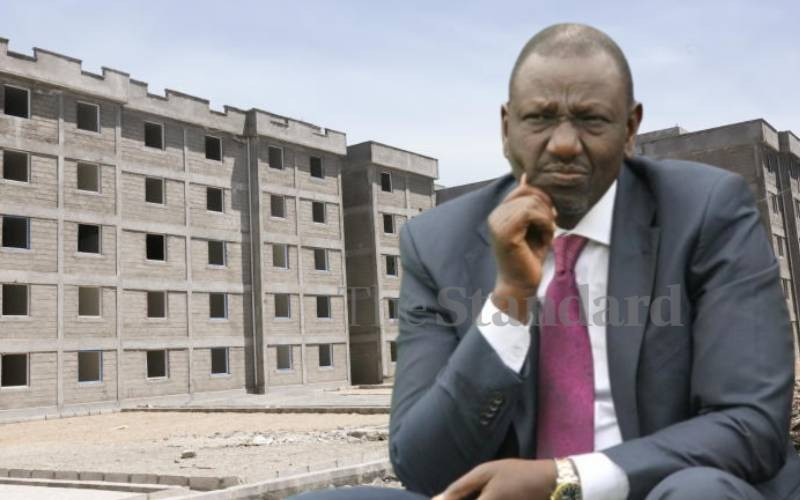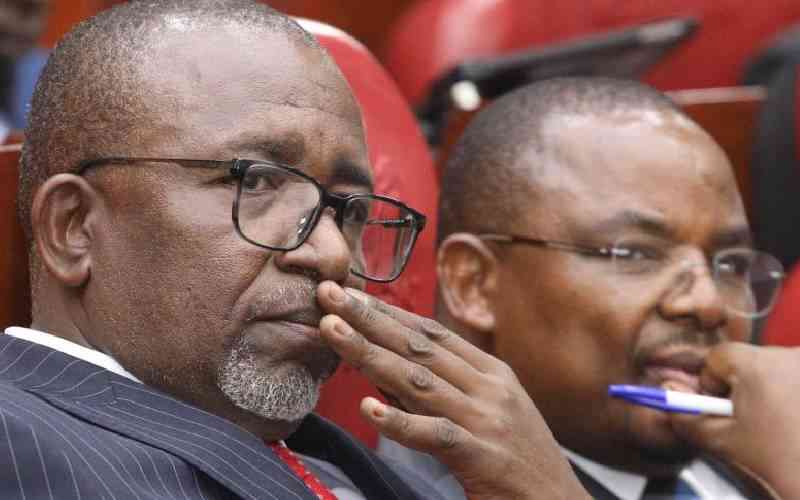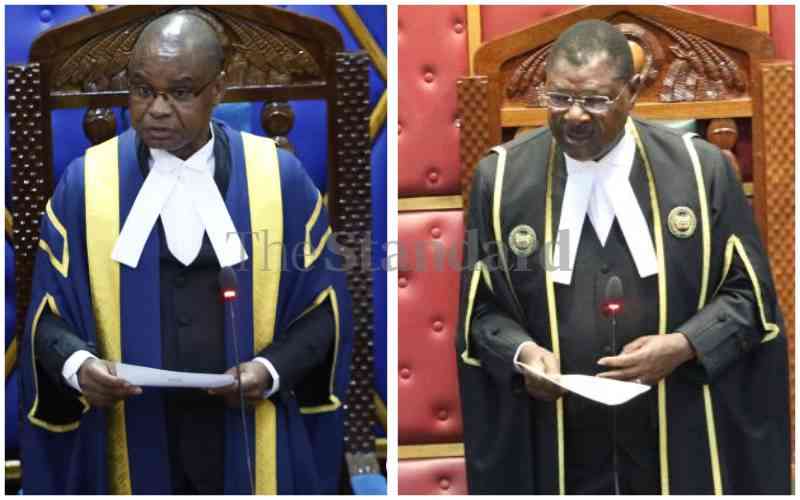President William Ruto on Friday suffered a major blow after the Court of Appeal declined to extend an order allowing the government to continue collecting the housing levy.
The ruling came just hours after the President vowed to implement the housing levy despite the High Court judgment that declared it unconstitutional.
It appeared the Head of State, who has been vocal in his push for affordable housing programme, spoke as three judges ruled that public interest tilts in favour of not granting the order sought by the government.
“Public interest in our view tilts in favour of not granting the stay or suspension sought. Public interest tilts in favour of awaiting the determination of the issues raised in the intended appeals,” justices Lydia Achode, John Mativo and Mwaniki Gachoka said.
While on a tour of Meru County on Wednesday, President Ruto said; “We know what we must do but we can't gather the courage to do it. This time around, whatever it takes, we are going to implement it (housing levy).”
Good plan
The Head of State said the project is a good plan and had been proposed by both his Kenya Kwanza administration and the Azimio la Umoja coalition but argues that there seems to be a problem with its implementation.
"This beautiful project was in the manifesto of Kenya Kwanza, the same project complete with percentages of the levy was also in the Azimio manifesto. But when it came to implementation, that is where the devil lives. We are going to do this," he said.
In its appeal, the government had asked the Court of Appeal to suspend a judgment of the High Court that found the levy illegal as it targets a section of the population.
In their decision, the judges supported the High Court’s decision that the housing levy was introduced without a legal framework, terming it unlawful as it only targeted a section of Kenyans.
“The question is whether it would be in public interest to allow a statute that has been found to be constitutionally sick to continue being in the law books pending an appeal. We do not think so,” the Court of Appeal judges declared.
They further argued that although suspending the levy may disturb a section of Kenyans, the court must consider all Kenyans while applying public interest considerations.
The judges held that the government would suffer no prejudice if the levy stands suspended, because if its appeal succeeds, the levy collection can be backdated and collected.
“Accordingly, the argument that the appeal will be rendered nugatory premised on the ground that it is not possible to backdate the levy collapses,” they ruled.
The court dismissed the government’s argument that it risked being sued for breach of contracts signed in its effort to implement the Affordable Housing Project, allegedly funded by the levy.
Stay informed. Subscribe to our newsletter
They held that not even a single contract was placed before them to support the assertion and in the absence of cogent evidence, the argument fails.
“It was also argued that some government departments may shut down and jobs will be lost. However, details of the alleged jobs were not provided,” they noted.
“The applicants (government agencies), left it to the court to fill the gaps. We cannot do so without appearing to descend into the arena of the dispute. We decline the invitation to do so,” they ruled.
They further ruled that they were not convinced that over 1,000 statutory instruments would lapse in January because nothing stops parliament from re-enacting them.
The judges, however, considered 30 grounds of appeal by the government against the housing levy declaration and ruled that they were arguable. They directed that the appeal be heard and determined quickly.
The judges further dismissed an application by Katiba Institute and 48 other parties that sought orders suspending four sections of the Finance Act 2023; VAT Act and Excise Duty Act.
“The application invites the court to suspend the operation of sections of the law on an application without hearing the appeal on merits. Such a drastic order cannot be issued on an application and no court properly directing its mind to the law can grant such an order,” they ruled.
Similarity between
According to the court, each case depends on its own facts and a close similarity between one case and another is not enough. They warned other courts to avoid comparing cases.
“One should avoid the temptation to decide cases by matching the colour of one case against the colour of another,” they warned.
The National Treasury Cabinet Secretary, the Attorney General, speakers of the National Assembly and the Senate and the Kenya Revenue Authority, wanted the levy maintained pending their appeal.
Through Lawyer Githu Muigai, they argued that if the levy is stopped, affordable housing projects would stall and the anticipated revenue of Sh73 billion will not be collected.
“The government has started work on the affordable housing programmes which will be stalled, contracts would be terminated and Kenyans would lose their jobs,” said Muigai.
In response, Busia Senator Okiya Omtatah, the Law Society of Kenya (LSK) and human rights groups submitted that the government had the capacity to recover the lost levy.
Last year, High Court judges David Majanja, Lawrence Mugambi and Christine Meoli ruled that the levy was discriminatory, created unequal principles, violated the principles of taxation and its enactment was not supported with any legal framework.
Kenyans, employed on permanent and pensionable terms or contract-based engagements started paying the housing levy in July 2023, when the Act came into force.
 The Standard Group Plc is a
multi-media organization with investments in media platforms spanning newspaper
print operations, television, radio broadcasting, digital and online services. The
Standard Group is recognized as a leading multi-media house in Kenya with a key
influence in matters of national and international interest.
The Standard Group Plc is a
multi-media organization with investments in media platforms spanning newspaper
print operations, television, radio broadcasting, digital and online services. The
Standard Group is recognized as a leading multi-media house in Kenya with a key
influence in matters of national and international interest.
 The Standard Group Plc is a
multi-media organization with investments in media platforms spanning newspaper
print operations, television, radio broadcasting, digital and online services. The
Standard Group is recognized as a leading multi-media house in Kenya with a key
influence in matters of national and international interest.
The Standard Group Plc is a
multi-media organization with investments in media platforms spanning newspaper
print operations, television, radio broadcasting, digital and online services. The
Standard Group is recognized as a leading multi-media house in Kenya with a key
influence in matters of national and international interest.


